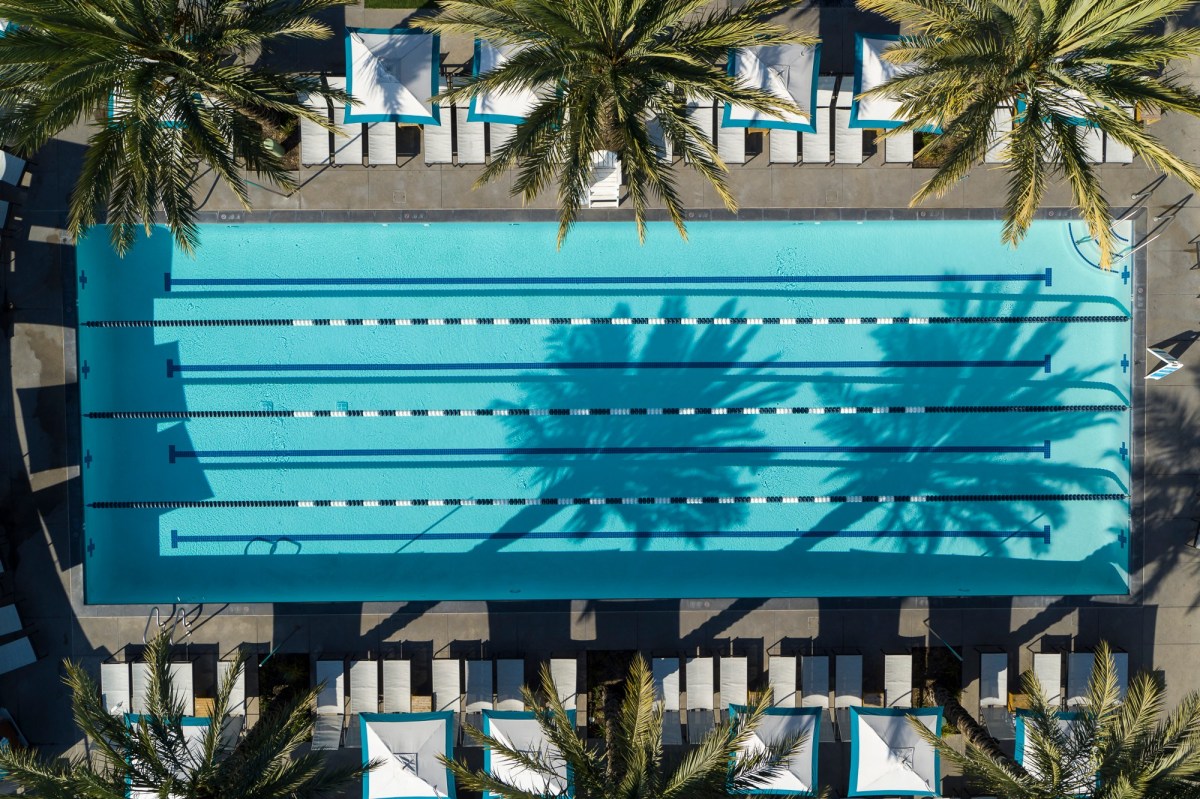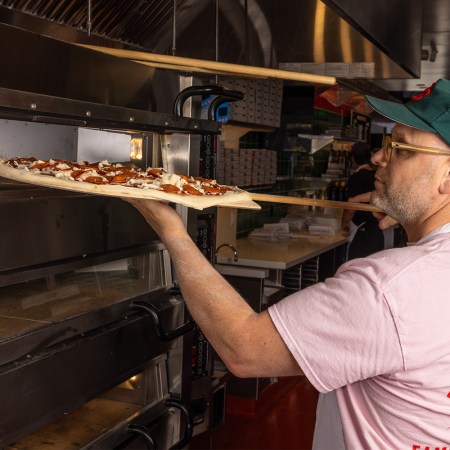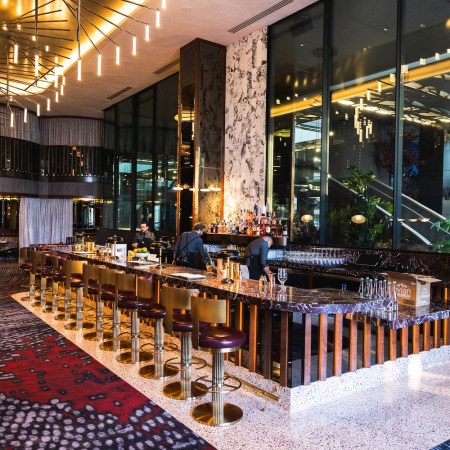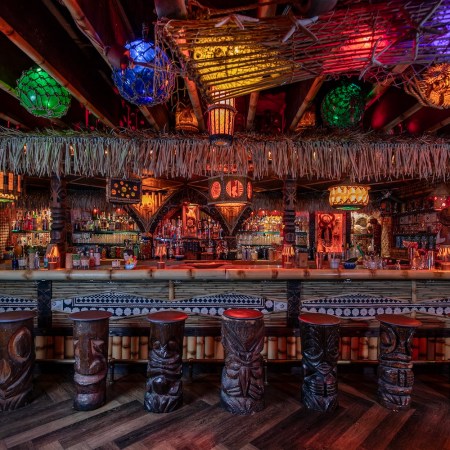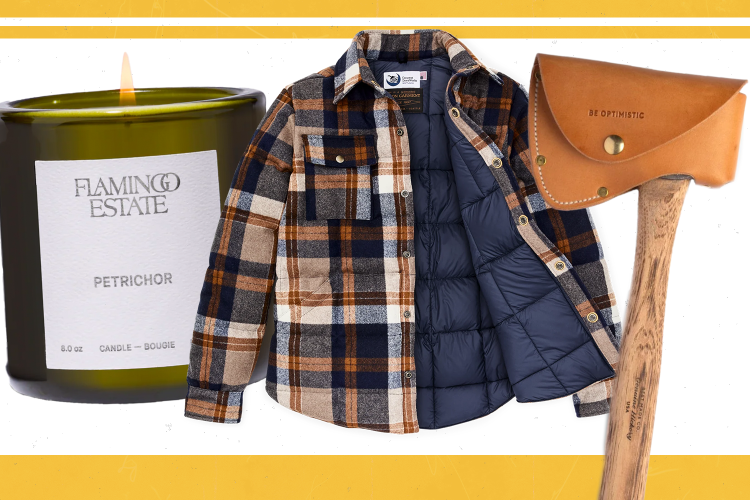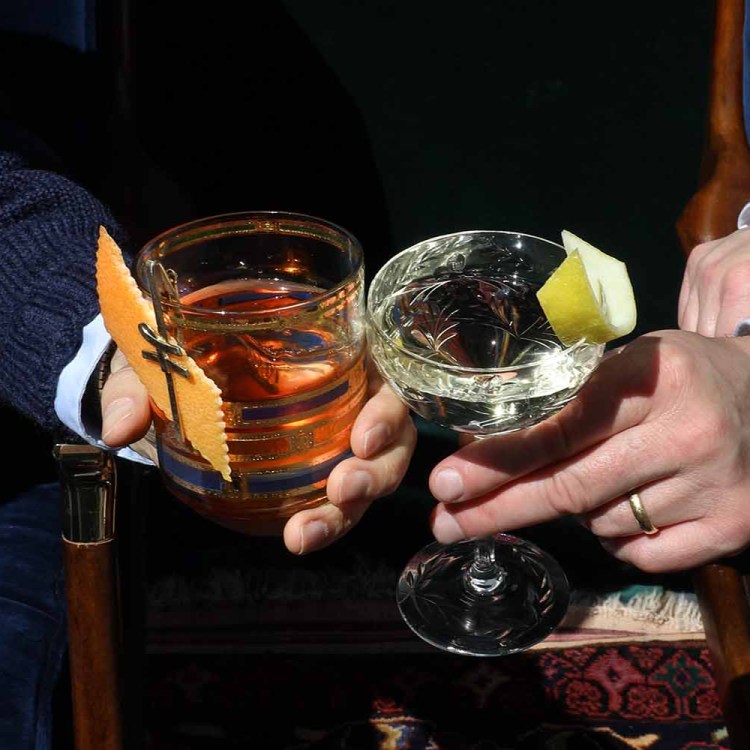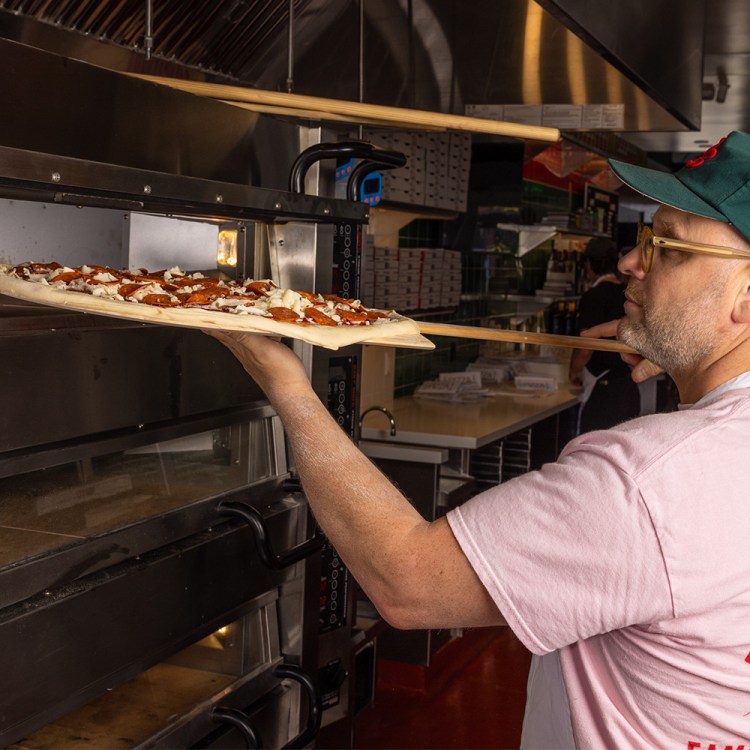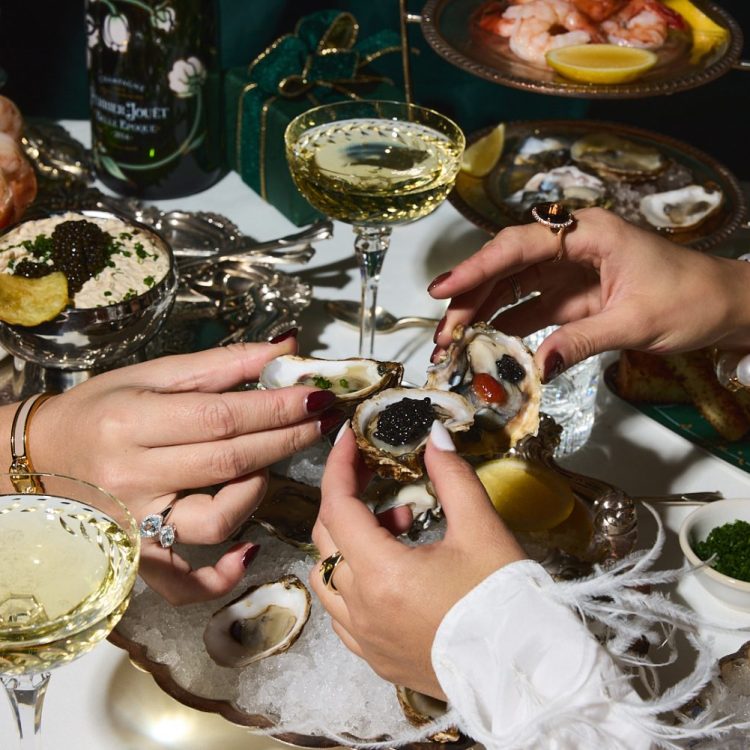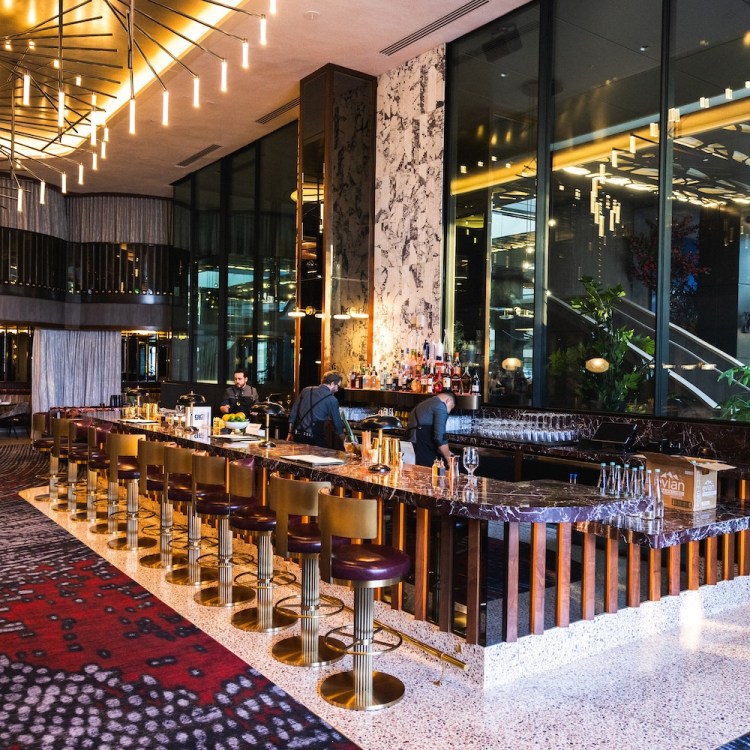In the last two decades, private social clubs and members-only workspaces have been cropping up in spades. From the coveted cache of elite groups like Soho House, feminist havens à la The Wing or even even remote workers and the self-employed adopting hot desks at WeWork-style offices, a renewed interest in lavish, home-away-from-home spaces is growing exponentially. But in major cities like Los Angeles, these institutions existed long before the recent boom, offering a chance for aspiring transplants to mingle with the city’s elite — which ironically tended to exclude Hollywood glitterati back in the 1920s and ‘30s. In defiance of that exclusion, Cheviot Hill’s Griffin Club was first founded to provide a haven for entertainers and actors who were reportedly “shunned by the elite clubs of the time.”
Nestled in one of LA’s more historical neighborhoods and positioned between two big film studios — MGM (now Sony) and Fox — the iconic space opened as Palomar Tennis Club in 1926, making it one of the oldest private clubs in the city. Established specifically for film execs to socialize and boasting founding members like Elmer Griffin (uncle of media mogul Merv Griffin), the club and its many tennis courts were frequented by the likes of Clark Gable, Jack Lemmon and Humphrey Bogart. Though the name and ownership of the property have changed several times over the years, its celebrity ties and status as a private, four-acre retreat in the middle of a residential area has always attracted interest.
“This club was a place where Hollywood elites could hang out in privacy,” said Graham Culp, a managing partner of the LA-based Meriwether Companies, who now co-owns the property with Singerman Real Estate. “We’re very different today in that we’re a much more diverse and welcoming club. We still have people from the entertainment industry, but also business professionals, real estate professionals and a mix of the neighborhood and community we’re in. We’re still a private club, and I get that there’s a level of exclusivity there, but I think it’s much more vibrant and welcoming than other clubs.”
Touring the Griffin Club a few weeks ago, Culp’s assertion about the club’s diversity is clear. During our mid-week visit, a group of elderly Asian women were quietly playing mahjong at a table on the lawn while mothers of various backgrounds swam in the family pool with their children and a scattering of young professionals worked on laptops in both indoor and outdoor areas, carefully socially-distanced from one another. While the new social-club boom tends to cater to young, single professionals who want to network and party, the Griffin Club is primarily targeting young families.
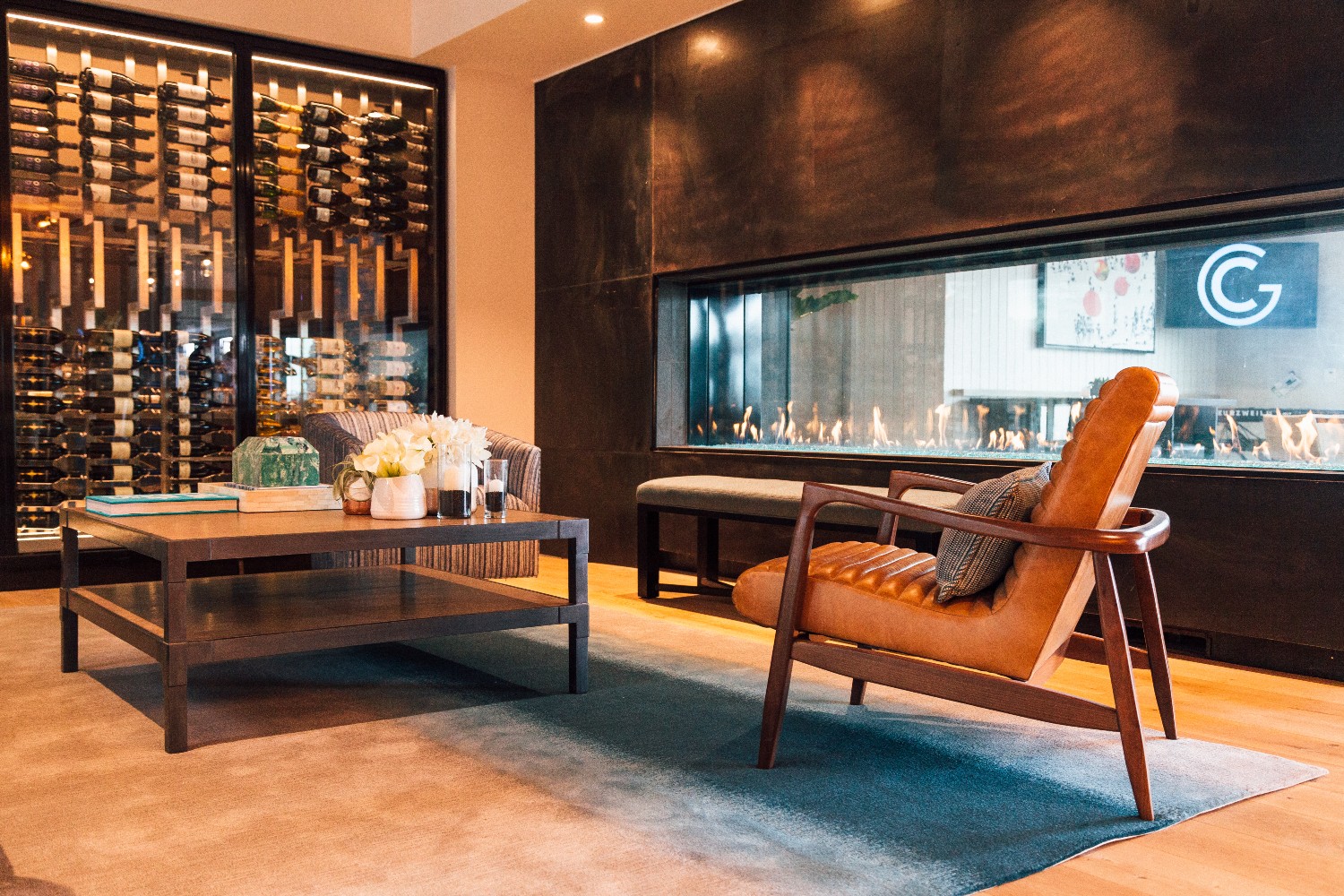
Dubbed Beverly Hills Country Club back in 1985 — a misnomer that persisted for two decades — when the current owners acquired the property in 2015, they changed the name and began a $20 million dollar renovation to bring the building and grounds into the 21st century. “We’re not in Beverly Hills, nor are we a country club, so we decided to change the name to the Griffin Club,” explained John Myers, Senior Vice President of Meriwether Companies, and the club’s current Director of Membership. “We do have this cool history as one of the oldest private clubs in Los Angeles, so we settled on Griffin Club in homage to one of the club’s earliest members and one of its founders, Elmer Griffin. That was also a nod to the history of the club, it’s been a tennis club in this community for over 90 years.”
Historical buildings are great on an emotional level, but logistically, the property needed updating to make it competitive in the private club landscape. The grounds hadn’t been touched in 30 years, so renovations included adding a second, newer pool, redoing the tennis courts and installing glass on the whole backside of the building to let in natural light. The current owners also replaced one of the property’s many tennis courts with a community turf lawn for multi-functional outdoor activities, created larger, more modern locker rooms packed with opulent amenities like saunas and steam rooms, and expanded the outdoor bar. Yet even as those renovations came to a close, the club faced another difficulty — pivoting to accommodate 2020’s new pandemic-related guidelines.
Inevitably, most of the newer, networking and nightlife-focused social clubs have been shut down for the foreseeable future due to the advent of this year’s crushing pandemic, and though some have shifted to online programming or digital membership, this gap has left room for an outdoor-focused property like Griffin to step in. With their extensive tennis courts, two full swimming pools — the only club in LA that can boast that — terraces, lawns and other outdoor workout areas spread across four acres, joining a club like Griffin could be much more useful over the next year as social-distancing and outdoor-only precautious remain in place.
Though Griffin has halted their indoor dining and limited seated restaurant service to just weekends for now, a small walk-up cafe window offers fresh sushi, personal pizzas, hearty salads and smoothies on weekdays, along with all-day coffee service and alcoholic beverages in the evening. These amenities help the club double as a workday coffee-shop replacement, or an outdoor alternative to the now-fraught process of going out to a bar. Masks are required for all members except when eating, swimming or otherwise distanced far enough from others to be safely removed, and the staff routinely clean and sanitize all areas in use.
Pandemic aside, since taking over the club the new owners have also revitalized membership growth, not only with the new facilities in place, but also by building it into what they call a “modern sports resort.” Griffin Club isn’t just competing with the likes of Soho and WeWork, they’re also well within rights to compare themselves to Equinox or other high-end gyms.
“Now we have large areas for fitness and locker rooms, not to mention dining and open space, and during COVID-19, we’re benefiting from being on four acres,” Culp said. “Members are out playing tennis and on the courts, they’re in the pools, and though it’s sad to see empty locker rooms, the outdoor facilities are all still completely functional.”
The club also boasts trendy fitness breakout areas like a private pilates room, multiple weight training centers, a yoga room, spin room and brand new cardio machines that are quietly awaiting a return to normalcy. Though other members-only clubs might offer half-hearted, small fitness spaces, a huge part of Griffin’s identity is their sports programming. And even if higher-end gyms have lately tried to build out from just their fitness niche, the results are never quite as polished as the rest of this club’s hospitality efforts.
This club is designed for those who want to gather as a family unit, where children are welcome and afternoon swim or tennis lessons carry more weight than exchanging business cards or flexing on social media. But it isn’t so family-focused that tennis obsessives or younger members interested in fitness or socializing would be uncomfortable — a separate, adults-only pool is an assurance that there’s space here for everyone.
For those with young families or remote workers stuck in small apartments, Griffin Club could be a great fit for socializing, working out and finding community amid all of this year’s chaos. And if all the amenities aren’t enough on their own, playing tennis on the same court where Clark Gable used to swing a racket is exactly the kind of draw that corporate, cookie-cutter outfits like WeWork can never offer. Preserving LA’s history means preserving the buildings where that history occurred, and Griffin Club is a great example of how it’s actually possible to keep the city’s legacy intact.
Learn more about applying for membership here.
This article was featured in the InsideHook LA newsletter. Sign up now for more from the Southland.
